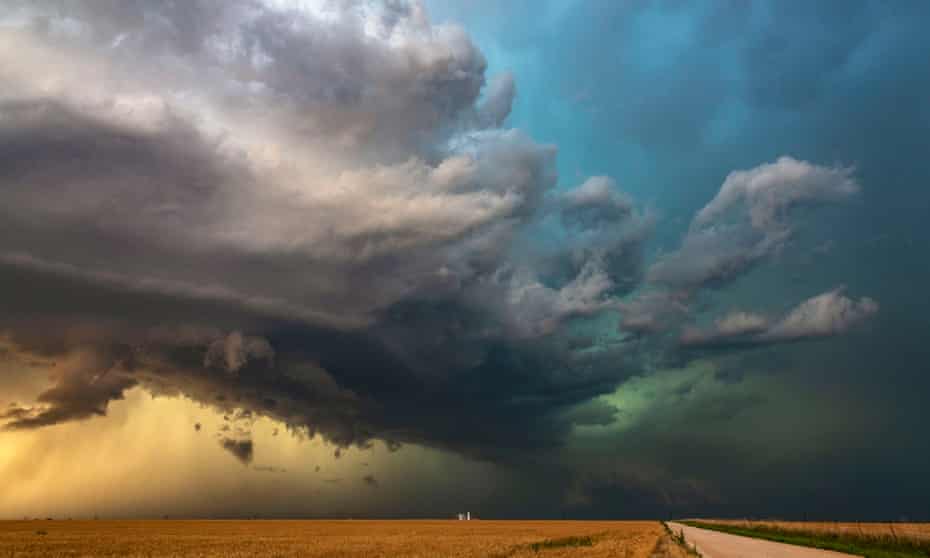A Cop26 deal was always going to be messy – just look at world trade talks

WTO talks show how hard it is to get everyone on the same page – and what goes for trade, goes for climate too

It was a messy compromise. It wasn’t nearly enough. In many respects it was a classic example of kicking the can down the road. But Cop26 wasn’t the car crash it could have been and, realistically, was always going to end in the way it did, with last-minute haggling over the text.
Why? Because achieving a climate change deal at a meeting of representatives from 197 countries was always going to be tough. While there was general agreement about the need to tackle global heating, there were big differences about how and when to do so.
Countries are at different stages of development. Some have contributed more than others to greenhouse gases in the past, while others have higher emissions now. Everybody wants the maximum amount of gain for the minimum amount of pain. Glasgow saw all these views expressed and more. Opinions differ about the optimal number of participants for a meeting but it is not 197.
Anybody who has watched the struggle to piece together a new global trade deal understands the problem. Twenty years ago this month, the World Trade Organization launched a round of trade liberalisation talks in Doha, with the idea of coming up with a comprehensive deal that would include manufactured goods, services, agriculture and fishing.
There was a time when developing countries were expected to approve trade deals that had been cooked up by the Americans and the Europeans, but those days are over. China, India and Brazil are now big players in trade talks and are quite prepared to say no to proposals seen as biased towards the interests of developed nations. The last-minute watering down of the text on fossil fuels in Glasgow is a reminder of that. The anger among the least developed countries over the failure of richer nations to meet their promises of $100bn (GBP75bn) a year to help them cope with climate change is another.
Two decades since its launch, work continues at the WTO’s headquarters in Geneva on a multilateral agreement but it is proving hard to get all 164 members on the same page. Glasgow was in many respects no different.
Many WTO members have become frustrated at the slow progress and now favour a plurilateral approach- a form of agreement between coalitions of the willing, pieced together in areas of mutual interest, but smaller than a multilateral deal. These include not just services and e-commerce but also labour standards and climate change.
While there is not the remotest possibility of getting 164 WTO countries to agree to a deal that would link trade to eliminating fossil fuel subsidies, it is conceivable that 40 or 50 countries might come to such an agreement. Consumers would be told whether or not the goods they were buying came from a clean energy country and could act accordingly. Opinion polls suggest people are becoming greener in their shopping habits. Making action against climate change part of plurilateral trade deals would test how solid this commitment is.
Even so, it is a weak form of redress. A country that signs up to a trade deal knows there are penalties if it breaks the rules. The WTO has a mechanism for settling disputes between member countries and, until recently, a functioning appeals body.
Contrast that with the UN Cop talks. Sure, countries can sign up to targets to keep global temperatures to 1.5C above pre-industrial levels. They can pledge to put in place policies to achieve net zero by a set date in the future. They can accept the need to “phase down” fossil fuels as a source of energy. But there is no comeback if they fail to hit their targets or renege on their promises. Breaking a trade deal has consequences for transgressing countries; breaking a climate change accord does not.
Nor, if the WTO is anything to go by, will this change any time soon. A country can only face trade sanctions after it has been allowed the right of appeal before a panel of judges – international trade experts – appointed by the members. The US, quietly supported by other countries, has been blocking the appointment of new judges to replace those whose terms have ended and, as a result, appeals can’t be heard.
What goes for trade goes for climate too. Countries – big or small, rich or poor – are going to be very wary about ceding control over their domestic affairs to an international body with serious enforcement powers. Would China put itself in a position where it could be sanctioned for investing in new coal-fired power stations? Would the US agree to a system in which it could be put in the dock for failing to hit net zero targets? It seems unlikely.
As things stand, countries are more likely to face legal challenges for taking action to combat climate change than they are for failing to do so.
Joe Biden, for example, wants US action against global heating to deliver green jobs, so his Build Back Better bill put before Congress includes financial incentives that would treat domestic car producers of electric vehicles more generously than foreign ones. It would be surprising if this did not result in a trade dispute.
What’s more, trade deals agreed between countries often include provisions that allow companies to sue countries for policies that affect their profits. The Trade Justice Movement says five of the seven members of the G7 – Germany, France, Italy, Canada and the US – have faced challenges from fossil fuel companies for their environmental policies.
Climate change and trade need to be linked. There is no point putting together the perfect climate change deal – which Glasgow is far from being – only to find that trade rules are inimical to it. Currently, trade is better policed and better protected than the environment, and that’s the wrong way round.
